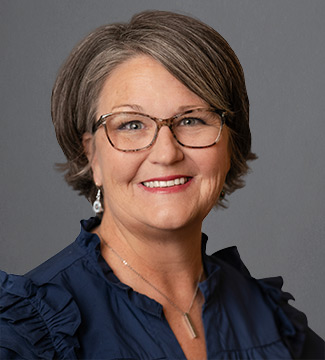
Angie Haustein
Biography
Angie Haustein is a speech-language pathologist and clinical instructor who has spent her career working in diverse settings, including preschools, elementary and secondary schools, foster care evaluation clinics, and juvenile detention facilities. Her primary focus is evaluating children, ages birth to 18, to identify the need for therapeutic intervention, special education placement, representation in court proceedings, and parental training and support.
She holds a bachelor's degree in Communication Disorders from Harding University and a master's in Speech-Language Pathology from the University of Mississippi. She gained experience through employment at Easter Seals Children's Rehabilitation Center, First Step Arkansas, UAMS KIDS FIRST program, UAMS: Project for Adolescent/Child Evaluation, and most recently the North Little Rock School District. Haustein’s passion is serving children and families who have been challenged by poverty, trauma, juvenile court involvement, and family disruption.
Haustein lives with her husband and son in Arkansas. She enjoys traveling, reading, watching documentaries, cheering for the Razorbacks, St. Louis Blues, and St. Louis Cardinals, and spending time with family and friends.
Education
- M.S., Speech-Language Pathology, University of Mississippi
- B.S., Communication Disorders, Harding University
Areas of Expertise
- Speech-language therapy in high poverty public schools in the areas of receptive/expressive language disorders, pediatric sound disorders, fluency disorders, and pragmatic language disorders
- Speech-language evaluations in underserved populations within public schools, state custody/foster care, and incarcerated youth
Topics
- Evaluation and treatment of communication disorders within high poverty public schools to develop individualized education plans, track progress, provide modifications and accommodations within the school environment, and support parents, teachers, and administration
- Collaboration with multidisciplinary educational and medical teams, including physicians, school psychology specialists, audiologists, mental health providers, occupational and physical therapists, social workers, and attorneys, to serve pediatric populations
- Evaluation of communication disorders within the pediatric population, age birth-18, entering the foster care system to determine developmental and educational needs while in state custody
- Evaluation of communication disorders among incarcerated youth, age 10-21, to determine educational needs, ability to participate in mental health therapy, and ability to understand legal charges, court proceedings, and navigation of the legal system